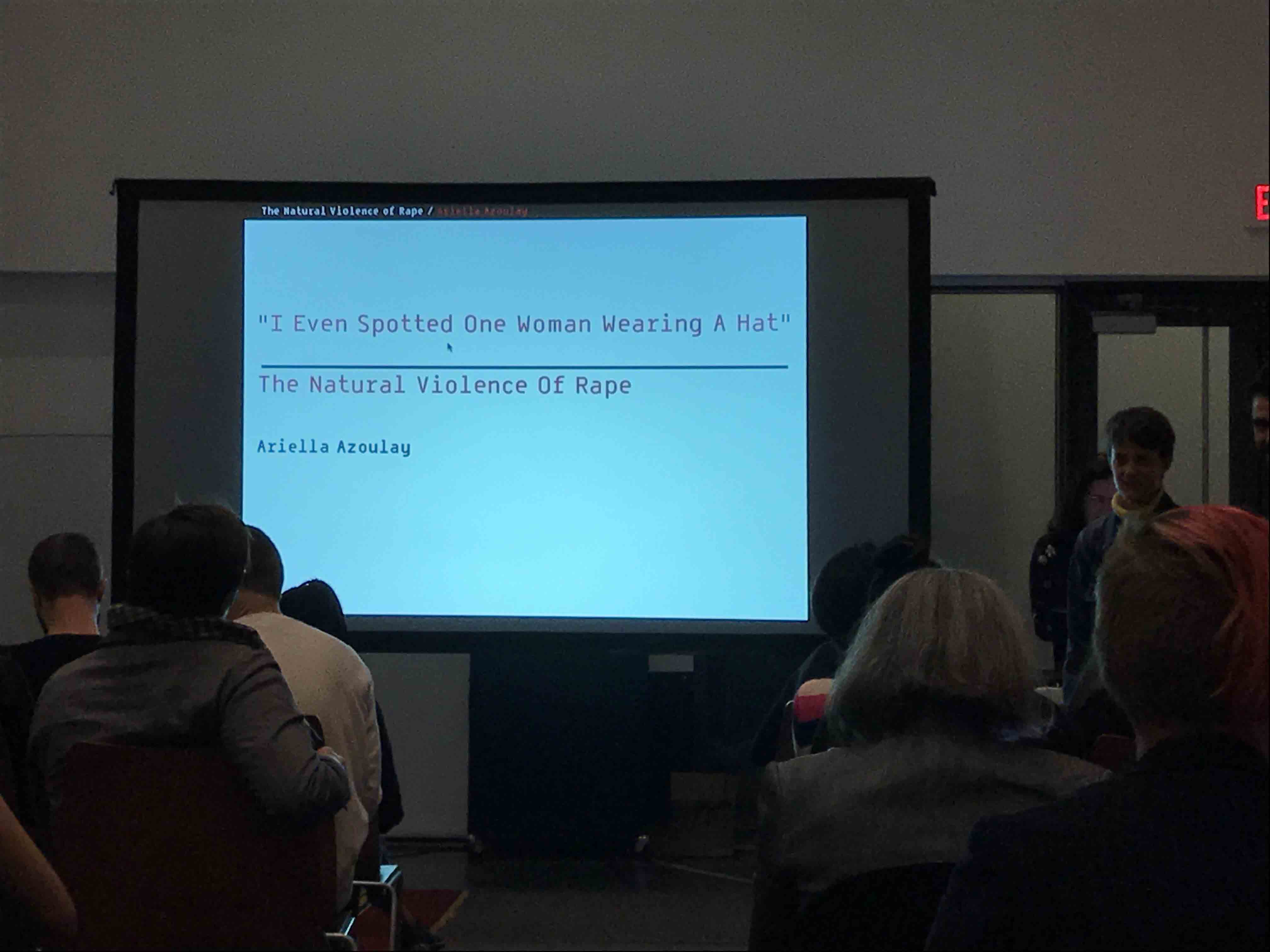
Ariella Azoulay, modern culture and media professor at Brown, discussed ways to reconcile the lack of photographic evidence of the more than 1 million German women raped in 1945 with the existing written record at a talk on Wednesday.
In the modernized and captivating E.I.K. building at the Yale School of Art, Azoulay discussed the repercussions of the absence of images of mass rape from the visual archive of 1945 Berlin. A documentary filmmaker as well as an academic, Azoulay aimed to explore the question of why so many images of mass destruction emerged from the period while none captured rape.
“Weeks of terror simply don’t exist in the timeline of imperial power,” Azoulay said. “After the Allied troops entered the city, the screams of women being raped or resisting rape could be heard. This sound should be associated with images where the level of rubble and density of smoke can be viewed.”
Most of these women were raped by Red Army soldiers in Berlin, Azoulay said. The rapes were not hidden, she said, and continued after the Germans surrendered in the late spring of 1945.
As a part of her presentation, Azoulay displayed her own “untaken images” of the mass catastrophe of rape in 1945 — black images supported by text taken from historians describing the acts of rape at the time. Many audience members characterized these untaken photographs as particularly fascinating and bold.
“I’m completely unfamiliar with her medium; I don’t think she’s an artist, I think she’s an archivist. Actually, yes, she is an artist,” Diego Palacios ART ’19 said. “The untaken and then the restricted photos, and her critique of archive in general, and her attempt to rectify the purposeful reduction is what I most admired. If I had to critique any of it, I would have to say that it feels [that] because it’s such a gray area, the proof isn’t there.”
Azoulay’s project of presenting black images as her way of photographing rape in World War II is what makes her an artist, said Coral Saucedo ART ’19. But not everyone at the talk was equally enthusiastic.
“I was more interested in the book she presented, and the black images were really strong, but overall it just felt like something she has recited a few times and presented multiple times, so it lost me in that sense,” said Alfredo Diaz ART ’19.
Azoulay will co-teach a class at Yale this year with Laura Wexler, a professor of women’s, gender, and sexuality studies.
Jever Mariwala | jever.mariwala@yale.edu







